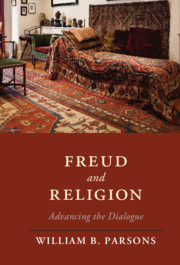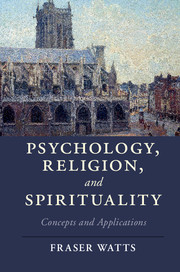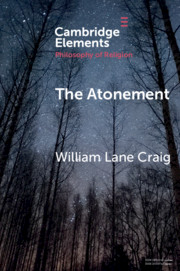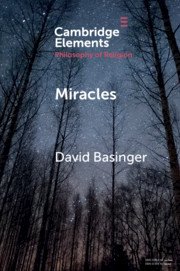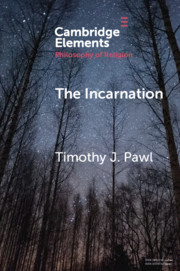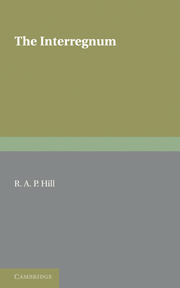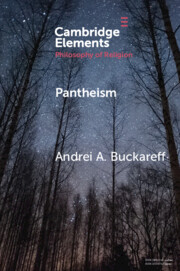Freud and Religion
Advancing the Dialogue
Part of Cambridge Studies in Religion, Philosophy, and Society
- Author: William B. Parsons, Rice University, Houston
- Date Published: May 2021
- availability: Available
- format: Paperback
- isbn: 9781108453707
Paperback
Other available formats:
Hardback, eBook
Looking for an inspection copy?
This title is not currently available on inspection
-
We live in an era that often described as 'therapeutic.' Our culture is suffused with unconscious fantasies and psychoanalytic ways of thinking about self, other, and society. Aspects of the Freudian cultural universe have also had an impact on how we think about religion. In this volume, William Parsons explores the relationship between religion and psychoanalysis through multiple, linked investigations. Why did Freud write about religion and what did he say? What were the multiple critiques levelled at his work? What were the post-Freudian psychoanalytic advances? How can we still apply psychoanalytic ideas going forward? In answering these and related questions, Parsons distinguishes between classic-reductive, adaptive, and transformational psychoanalytic models. He also argues that the psychoanalytic theory of religion needs to integrate reflexive, dialogical, and inclusive elements as part of its toolkit. Offering illustrations and applications of such revisions, Parsons creates new capacities for thinking psychologically and critically about religion.
Read more- Provides a history of Freudian and post-Freudian interpretations of religion and Illustrates multiple psychoanalytic theories in a way that makes them practically accessible
- Offers summaries of the multiple disciplinary critiques levelled at psychoanalytic interpretations of religion
- Develops a revised psychoanalytic toolkit which takes into account the critiques of Freud and his psychoanalytic heirs
Reviews & endorsements
'William Parsons has written a provocative book on Freud's relevance to the study of religion in modern times … It should be mandatory reading for those who would deny the relevance of either psychoanalysis or religion to the concerns that psychological science claims to address by its own commitments, for which they claim an unwarranted epistemic hegemony and ontology.' Ralph W. Hood Jr, International Journal of Psychology of Religion
See more reviews'… a masterful introduction to the most challenging figure in the modern, psychological study of religion - a must for every professional library.' Robert C. Fuller, Pastoral Psychology
Customer reviews
Not yet reviewed
Be the first to review
Review was not posted due to profanity
×Product details
- Date Published: May 2021
- format: Paperback
- isbn: 9781108453707
- length: 296 pages
- dimensions: 150 x 230 x 20 mm
- weight: 0.42kg
- availability: Available
Table of Contents
1. Why Freud wrote on Religion
2. Totem and taboo: the origin of religion
3. Freud's Moses: the advent of monotheism
4. Future of an illusion: the secular cure of souls
5. Civilization and its discontents: the Unbehagen of religion
6. Freud and eastern religions
7. Psychoanalysis and religion beyond Freud
8. Revisions and applications
Conclusion: Psychoanalytic spirituality.
Sorry, this resource is locked
Please register or sign in to request access. If you are having problems accessing these resources please email [email protected]
Register Sign in» Proceed
You are now leaving the Cambridge University Press website. Your eBook purchase and download will be completed by our partner www.ebooks.com. Please see the permission section of the www.ebooks.com catalogue page for details of the print & copy limits on our eBooks.
Continue ×Are you sure you want to delete your account?
This cannot be undone.
Thank you for your feedback which will help us improve our service.
If you requested a response, we will make sure to get back to you shortly.
×
